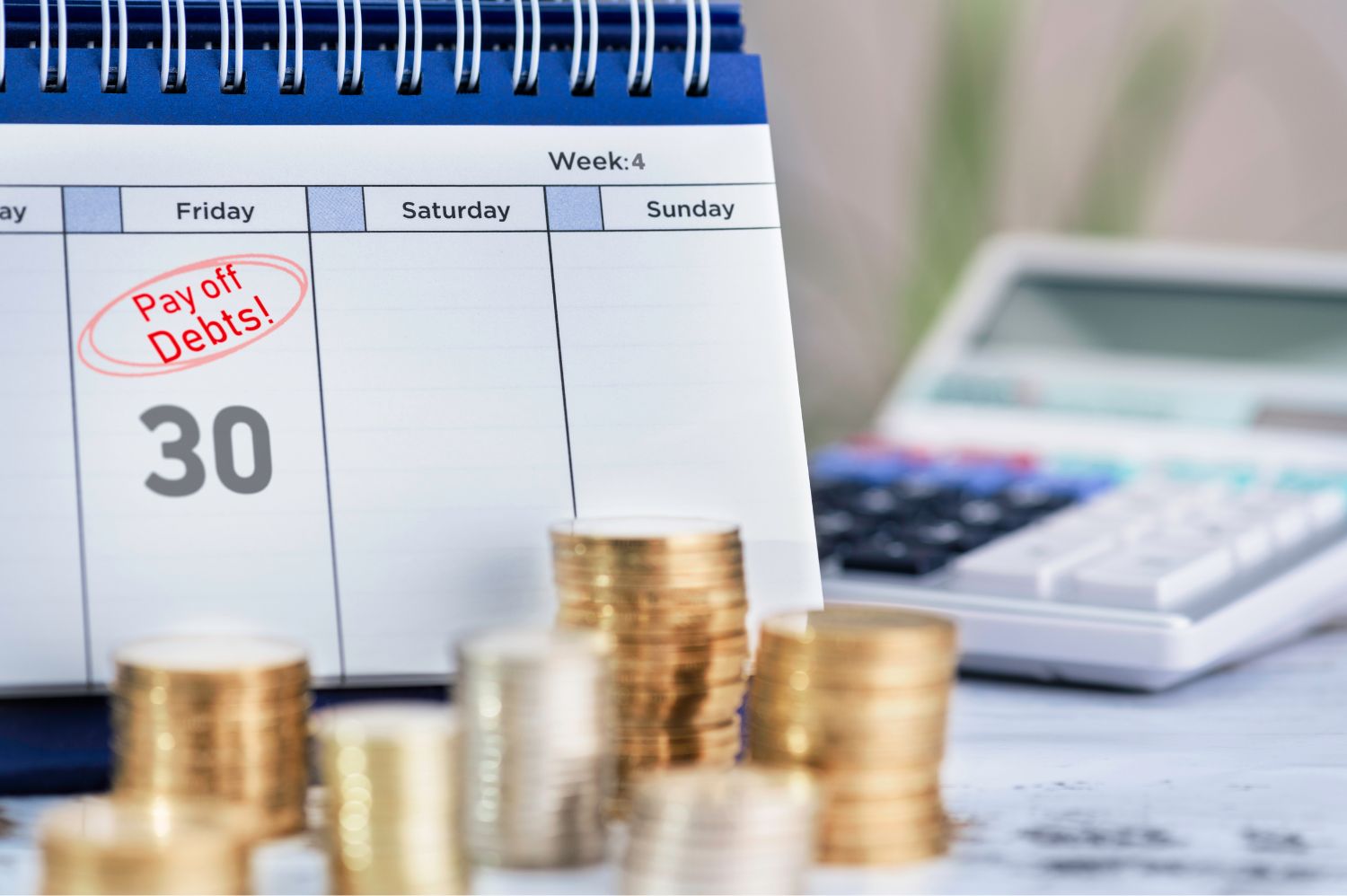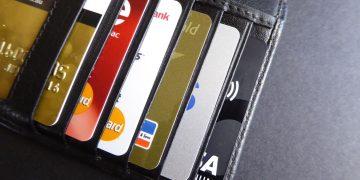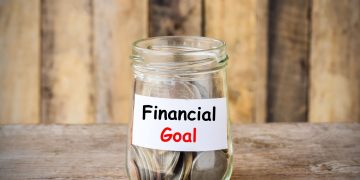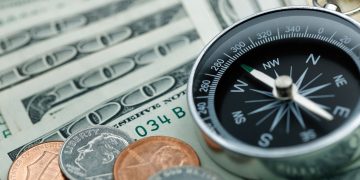Crush Credit Card Debt: The Ultimate Debt Payoff Playbook

Convenience and Financial Flexibility of Credit Cards
Credit cards can be incredibly convenient. They offer financial flexibility that cash and debit cards often can’t match. For instance, they allow you to make purchases online or pay for unforeseen expenses before your payday. Additionally, rewards programs and cashback offers can add extra value to your everyday spending. But, with great power comes great responsibility, as we’ll discuss.
Risks of Irresponsible Credit Card Usage Leading to Significant Debt
Despite their convenience, irresponsible credit card usage can lead to significant debt. Small purchases can quickly add up, making it easy to lose track of your spending. When you only make minimum payments, you may perceive that controlling debt is manageable. However, this approach often masks the real cost and can lead to a cycle of accumulating debt that’s tough to escape.
Negative Impact of High Interest Rates on Debt Accumulation
One of the most dangerous aspects of credit card debt is high interest rates. If you carry a balance from month to month, interest charges can rapidly inflate your outstanding amount. This makes it increasingly difficult to pay off your debt, as a large portion of your payment goes toward interest rather than reducing the principal amount. This can trap you in a cycle of debt that’s hard to break out of.
For example, if you have a $1,000 balance with an 18% interest rate and only make minimum payments, it can take over a decade to pay off and end up costing you significantly more than the original amount due to interest payments (Source: Financial Management Source).
Managing credit card debt requires careful planning and discipline. In the subsequent chapters, we will explore strategies to monitor credit card spending, establish and maintain a budget, and develop a plan to systematically pay off existing debt. Stay tuned to learn how to take control of your financial future.
Monitoring Credit Card Spending
Record All Transactions
Accurate and comprehensive recording of every transaction you make with your credit card is a cornerstone of effective financial management. Each purchase, bill payment, and cash withdrawal should be documented to give you a clear picture of your spending habits. This transparency helps you identify areas where you might be overspending and enables you to adjust your budget accordingly. Additionally, a detailed record allows you to spot any fraudulent activities or erroneous charges on your credit card statement, helping you resolve issues promptly before they escalate.
Use Financial Management Apps
Technology can be a powerful ally in monitoring your credit card spending. Financial management apps like Mint, YNAB (You Need A Budget), and PocketGuard offer robust tools to help you track your expenditures. These apps synchronize with your bank accounts and credit cards, automatically categorizing your expenses and providing insights into your spending patterns. By visualizing your cash flow, setting savings goals, and receiving alerts about excessive spending, these apps empower you to take control of your finances and make informed decisions.
Set a Monthly Budget
Establishing a monthly budget is essential for controlling your spending and ensuring it aligns with your financial goals. A budget helps you set spending limits for different categories such as food, transportation, and entertainment. This structured approach helps you live within your means and prevents the risk of incurring debt due to overspending. Tracking your progress throughout the month and comparing your actual spending to your budget allows you to identify problem areas and make necessary adjustments. A clear and realistic budget is a vital tool for achieving long-term financial stability.
Monitoring credit card spending isn’t just about avoiding debt; it’s also about cultivating financial discipline and awareness. By recording all transactions, leveraging financial management apps, and setting a monthly budget, you create a robust framework for managing your money effectively. This proactive approach helps you avoid the pitfalls of high-interest debt, maintain a healthy credit score, and reduce financial stress.
Monitoring your spending lays a strong foundation for the next step in our journey: Controlling Debt to avoid the escalation of costs, maintain a healthy credit score, and improve overall well-being.
The Importance of Controlling Debt
Controlling your debt effectively is critical for several reasons: it helps you avoid high interest rates and additional costs, maintain a healthy credit score, reduce financial stress, and improve overall well-being. Let’s delve deeper into each of these aspects.
Avoid High Interest Rates and Additional Costs
Credit card debts often come with notoriously high interest rates. When balances are not paid off promptly, the interest can cause the debt to balloon substantially over time. By keeping your debts in check and avoiding the accumulation of unpaid balances, you can significantly reduce the amount of interest you pay, ultimately saving money and accelerating your path to being debt-free.
- Prioritize paying off debts with the highest interest rates first.
- Make more than the minimum payment whenever possible.
- Consider balance transfer options with lower APRs, but be mindful of transfer fees.
Maintain a Healthy Credit Score for Future Opportunities
Your credit score is a vital component of your financial health. Excessive debt, particularly when paired with late payments or accounts in collections, can severely damage your credit score. This can make it harder to secure loans, mortgages, or even rent an apartment in the future. By controlling your debts and making timely payments, you can maintain a healthy credit score which, in turn, ensures you have access to better financial opportunities and favorable interest rates in the future.
- Set up automatic payments to ensure you never miss a due date.
- Keep your credit utilization ratio low (under 30% is recommended).
- Regularly check your credit report for errors and disputes.
Reduce Financial Stress and Improve Overall Well-Being
Living under the weight of constantly looming debt can take a severe toll on both your financial and emotional well-being. The stress from debt can lead to anxiety, depression, and a reduced quality of life. By taking control of your debts, you not only relieve this mental burden but also gain a sense of financial security and peace of mind. Implementing debt reduction strategies and adopting healthy financial habits will assist in managing this stress effectively.
- Create a realistic budget to give yourself clear financial boundaries and goals.
- Use financial management apps to track your progress and stay motivated.
- Seek professional financial advice if needed to develop a robust debt repayment strategy.
Maintaining financial discipline and prioritizing debt control are key to avoiding the pitfalls of excessive credit card debt and securing a stable financial future. By following these guidelines, you pave the way to greater financial freedom and improved well-being.
A Step-by-Step Guide to Paying Off Credit Card Debt
Tackling credit card debt can feel overwhelming, but with a structured approach, it’s entirely possible to regain control of your finances. Let’s delve into the steps you need to take to crush that debt and move towards financial freedom.
Organize Your Outstanding Debts
The first step in paying off credit card debt is to get a clear picture of what you owe. List out all your credit card debts, noting the outstanding balance, interest rate, and minimum payment for each. This detailed overview will help you understand the full scope of your debt and allow you to prioritize accordingly.
Prioritizing High-Interest Balances
Focus on paying off debts with the highest interest rates first. These are the debts that cost you the most over time, and tackling them early can save you substantial amounts in interest payments. Continue making minimum payments on all other debts to avoid penalties while you prioritize high-interest ones.
Create a Targeted Budget for Debt Repayment
After organizing your debts, the next step is to create a realistic budget. This budget should account for all your monthly expenses and include a specific allocation for debt repayment. By setting aside a fixed amount each month towards your credit card debt, you can systematically reduce your balances over time.
Steps to Building Your Budget
- Identify all sources of income and list them.
- Track your monthly expenses and categorize them.
- Determine essential expenses versus non-essential ones.
- Allocate extra funds towards credit card debt repayment.
This structured budget helps you stay disciplined and ensures that you are consistently putting money towards reducing your debt.
Negotiate Lower Interest Rates
Picking up the phone and talking to your credit card issuers might seem daunting, but it can yield significant benefits. Ask your creditors if they’re willing to lower your interest rates. A lower rate means more of your payment goes towards the principal balance rather than interest, speeding up your debt repayment process.
How to Approach the Negotiation
- Be polite and explain your financial situation.
- Cite your history of on-time payments if applicable.
- Be ready to discuss balance transfer options if necessary.
Most credit card companies are open to negotiating terms, especially if you are a good customer. It doesn’t hurt to ask!
Explore Consolidation Options
Debt consolidation can be a powerful tool when managing multiple credit card debts. By consolidating your various debts into a single loan with a lower interest rate, you can simplify your payments and potentially reduce your interest costs. Consider options such as personal loans, balance transfer credit cards, or home equity loans for consolidation.
Benefits of Debt Consolidation
- One manageable monthly payment.
- Potentially lower overall interest rates.
- Streamlined debt management.
Before you consolidate, ensure you understand the terms and fees associated with your new loan to avoid any unexpected surprises.
Following these structured steps can significantly aid in your journey to pay off credit card debt. Stay disciplined, keep your goals in sight, and remember that every payment brings you one step closer to financial freedom.
Strategies for Accelerating Debt Repayment
Boost Your Income
Taking on Temporary Jobs
One of the quickest ways to generate extra cash for debt repayment is by taking on temporary or part-time work. Opportunities abound, from seasonal retail jobs to gig economy roles like driving for a rideshare service or delivering food. Not only do these jobs offer flexibility, but they also require minimal training, allowing you to start earning immediately.
Exploring Freelance Work
Freelancing is another excellent way to increase your income. Whether you have skills in writing, graphic design, or programming, many platforms such as Upwork or Fiverr can connect you with clients in need of your expertise. Even a few hours of freelance work each week can significantly contribute to paying off your credit card debt faster.
Selling Unused Items
Take a look around your home; you might be surprised by how many items you no longer use. From electronics to furniture and clothing, selling these items online through platforms like eBay or Facebook Marketplace can provide a quick influx of money. Decluttering your space and reducing your debt at the same time is a win-win.
Focus on Debt Reduction
Making Extra Payments
Once you have started generating additional income, it’s essential to direct that money towards your debt. Making extra payments above the minimum amount significantly reduces the principal balance faster and minimizes the long-term interest cost. By focusing on high-interest debts first, you can save even more.
Automating Payments
Automating your credit card payments ensures that you never miss a due date, helping you avoid late fees and penalties. Set up automatic payments for at least the minimum amount due to maintain good standing while you put extra effort into larger payments against the highest-interest debt.
Maintaining Financial Discipline
Avoiding New Purchases
While it’s tempting to use your credit card for convenience, abstaining from new purchases is crucial while you’re paying off existing debt. Stick to using cash or debit cards for day-to-day expenses, and avoid the allure of easy credit.
Setting Realistic Goals
It’s important to set achievable and realistic goals for your debt repayment journey. Break down your larger goals into smaller milestones. For example, aim to pay off a specific amount each month, and celebrate each time you achieve these mini-goals. This keeps you motivated and on track.
Curbing Impulse Spending
Impulse buys can derail even the best-laid plans. Implement a 24-hour rule before making any non-essential purchases. This cooling-off period can help you decide whether the item is truly necessary or just a fleeting desire. By employing these strategies, you can accelerate the pace of your debt repayment journey, thereby regaining financial control and paving the way for a stable and secure future. Stay focused, disciplined, and proactive in seeking out additional income sources, and watch your debt diminish faster than you thought possible. Remember, financial freedom is within your reach. Every extra dollar paid and every impulse purchase avoided brings you one step closer to a debt





